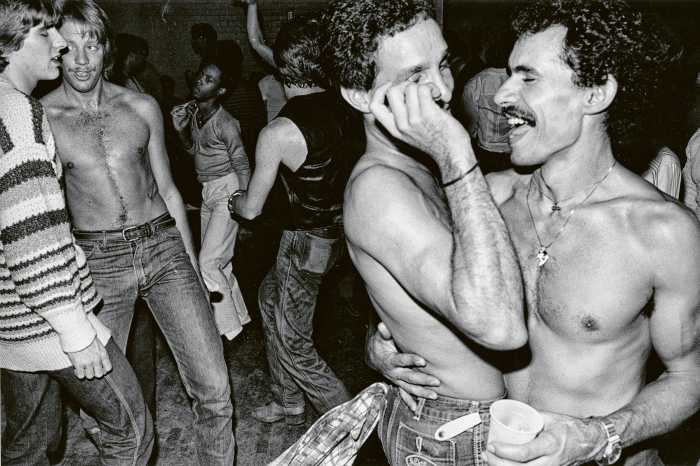The 24th annual Lambda Literary Awards ceremony, held June 4 at Midtown’s CUNY Graduate Center on Fifth Avenue, easily accomplished its mission of being the third, final, and most glamorous of New York’s spring trifecta of gay literary events. Bestowed by the Lambda Literary Foundation, the awards, nicknamed the Lammies, followed March’s Rainbow Book Fair and April’s Publishing Triangle Awards.
Always timed in conjunction with Book Expo America, North America’s largest such conference, this year’s edition of the Lammies was a particularly glitzy affair, with awardees and presenters that included bold-faced names such as writer Armistead Maupin, Oscar-winning actress Olympia Dukakis, lesbian feminist writer and activist Kate Millett, film actress Ally Sheedy, Broadway and film actor Anthony Rapp, playwright, screenwriter, and actor Charles Busch, TV host Ted Allen, and New York Times op-ed columnist Frank Bruni.
“This year we sold out of tickets for the event,” said Lambda executive director Tony Valenzuela. “The first time this has ever happened.”
More than 400 people attended and participated, with awards given in 24 categories, some sub-divided by gender.
Comedian Kate Clinton served as emcee, bringing her sharp and often biting sense of humor to the auditorium, with jokes touching on topics ranging from abortion to fellatio and politics, including a riff on New York Mayor Michael Bloomberg’s recent proposal to ban the sale of jumbo sodas. Clinton, who felt loneliness as a youth in upstate New York, knowing nobody else who was LGBT, also offered serious commentary, saying. “LGBT writing saved my life.” She added, “Audre Lorde saved my life.”
Maupin was the recipient of one of the Lambda Literary Foundation’s 2012 Pioneer Awards. He was introduced by Dukakis, who said that of all the roles she has played as an actress, none had more impact on her than that of Mrs. Madrigal, the landlady in Maupin’s “Tales of the City.” From Mrs. Madrigal, she said, she learned that “the most important thing for me was to survive myself.”
In receiving the award, Maupin acknowledged gay writers who came before him, in particular Christopher Isherwood, the author of “The Berlin Stories,” which was the basis for the stage and screen hits “Cabaret.” Thanking younger writers in the room who had spoken of his impact on them, Maupin said, “We all have someone who is further along than us, someone who reaches across the ages.” He added, “We are all committed to each other. We can pass it on, and take it from our elders.”
Rahul Mehta, author of “Quarantine,” which won the Gay Debut Fiction award, was among those paying tribute to Maupin. Accepting his award, Mehta said he was honored “to be in a room with Armistead Maupin and all the other great writers,” adding that LGBT “books told me I was not alone in the world.”
The other 2012 Pioneer Award went to Millett, a towering feminist icon, an early leader of the National Organization for Women (NOW), and the author of “Sexual Politics,” originally her Ph.D. dissertation for Columbia University. At a time when the feminist movement was beset by anxiety that it would dismissed as a push from man-hating lesbians, Millett, in 1970, was outed by Time magazine, something that made her a lightning rod for critics of women’s new-found assertiveness.
Though frail and requiring assistance in reaching the stage, Millett insisted on standing during her humor-laced speech, at first apologizing for its informality, saying, “I wrote this in a taxicab.” She said she was “impressed to be in the company of so many stars.” Recalling the difficulties of being an out lesbian feminist activist more than 40 years ago, she said that today “we’re practically a nation. We don’t have to hide anymore.”
Emotions were high among the award recipients, many of whom had spent years working on their projects, often with little economic reward in small niche categories within LGBT publishing. A particularly emotional response came from Jim Provenzano, whose book “Every Time I Think of You” won in the Gay Romance category. He bounded out of his seat, trotted to the stage, and was red-faced and ebullient in accepting his award.
The recognition of writers of color was one of the evening’s highlights. Farzana Doctor, whose “Six Metres of Pavement” won in the category of Lesbian Fiction, said she was particularly proud to stand before the audience as “a brown queer writer tonight.”
Following her award, the evening’s final prize went to Colm Tóibín for his “The Empty Family,” recognized in the category of Gay Fiction. The Irish writer was in Dublin and sent regrets that he was unable to receive the award in person.
The evening included a sidesplitting performance by Lypsinka, who wove famous telephone conversations from classic movies into a ‘50s-era song performance. The after-party was held at Slate, with Lady Bunny stepping out as DJ.
A complete list of Lammy winners can be found at lambdaliterary.org. The 2013 awards ceremony will mark a quarter-century for this esteemed community celebration.




































